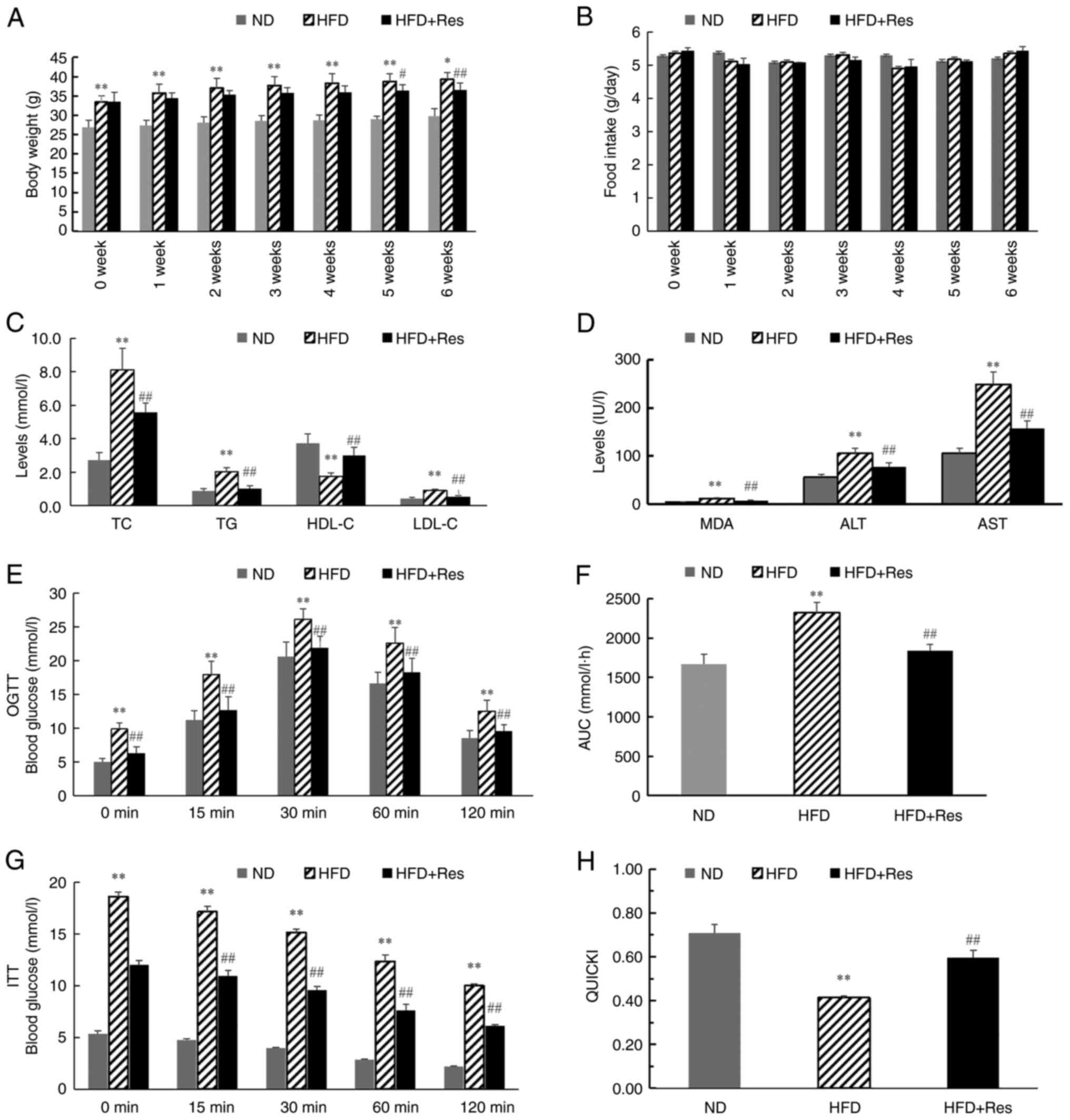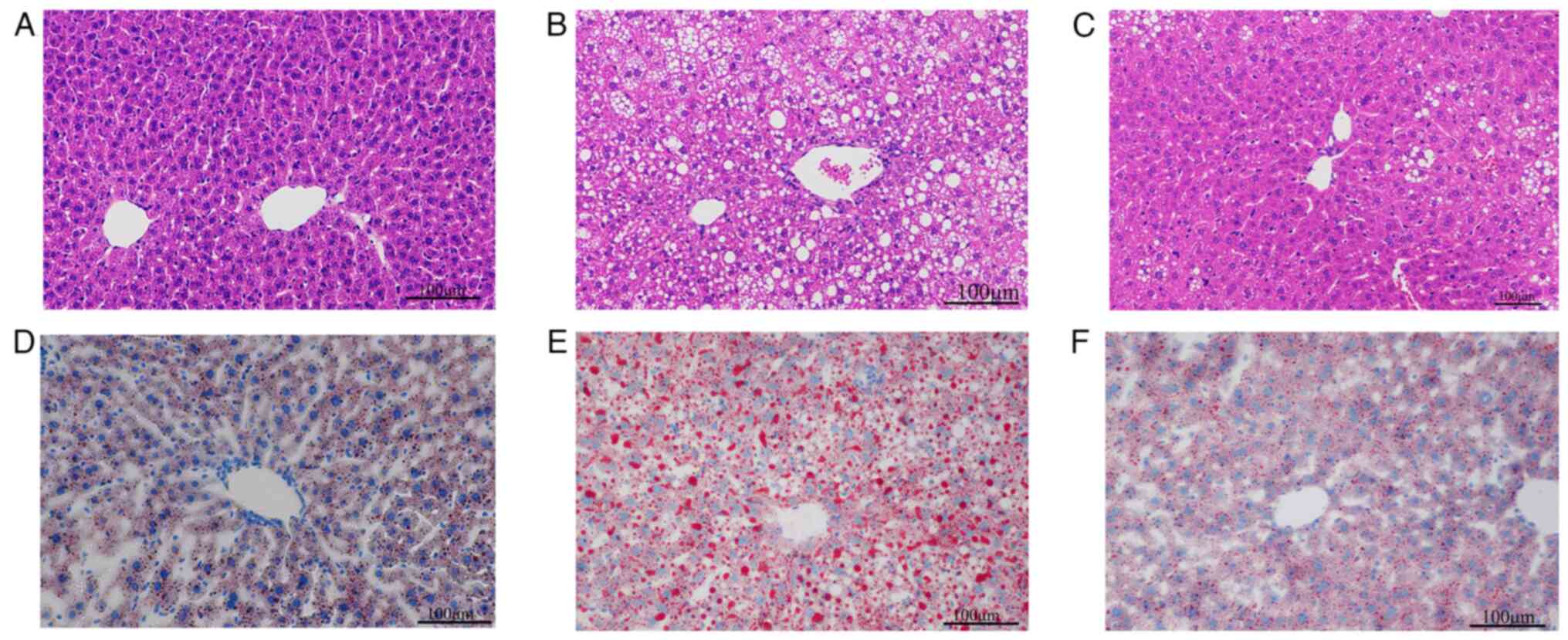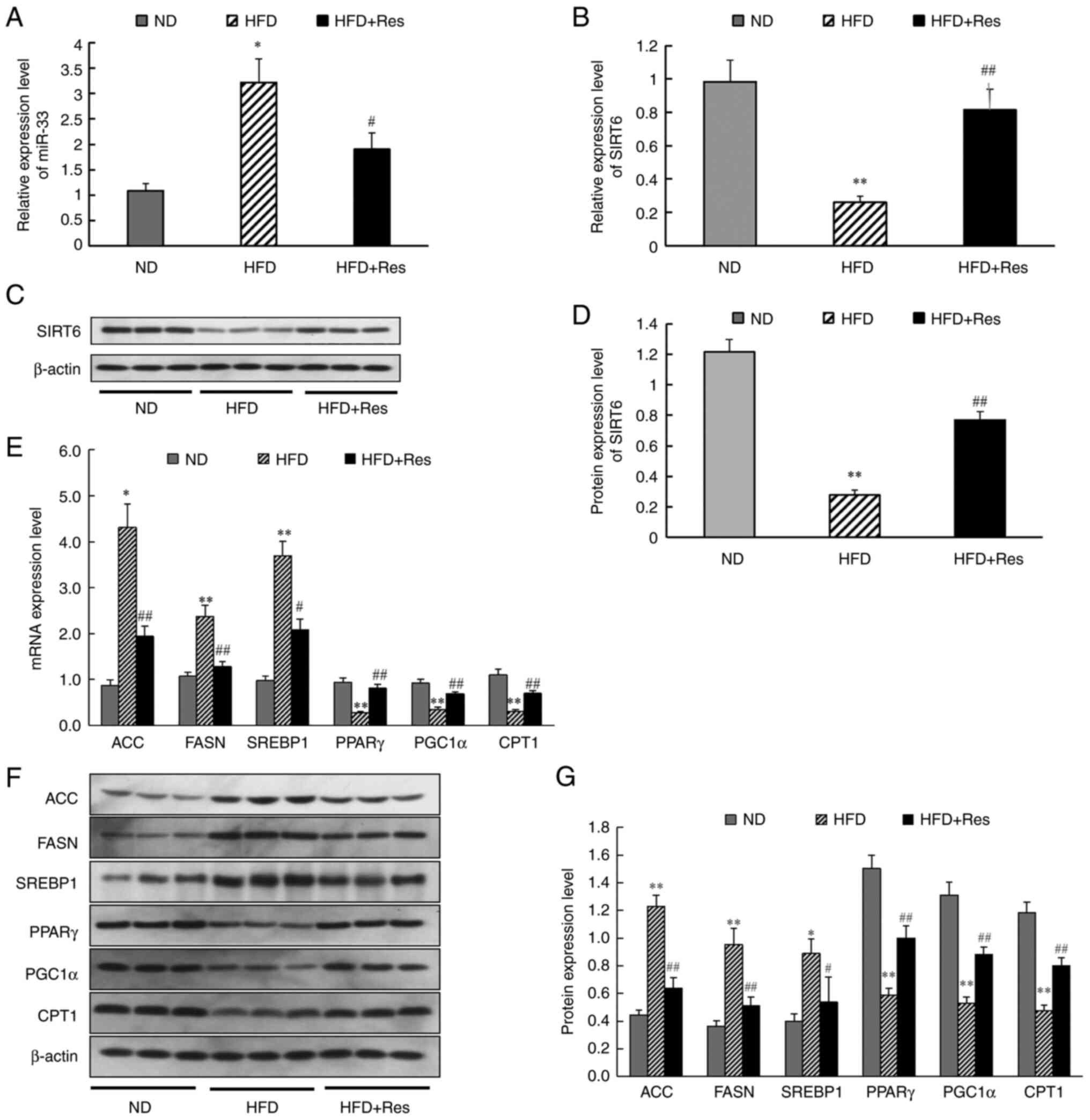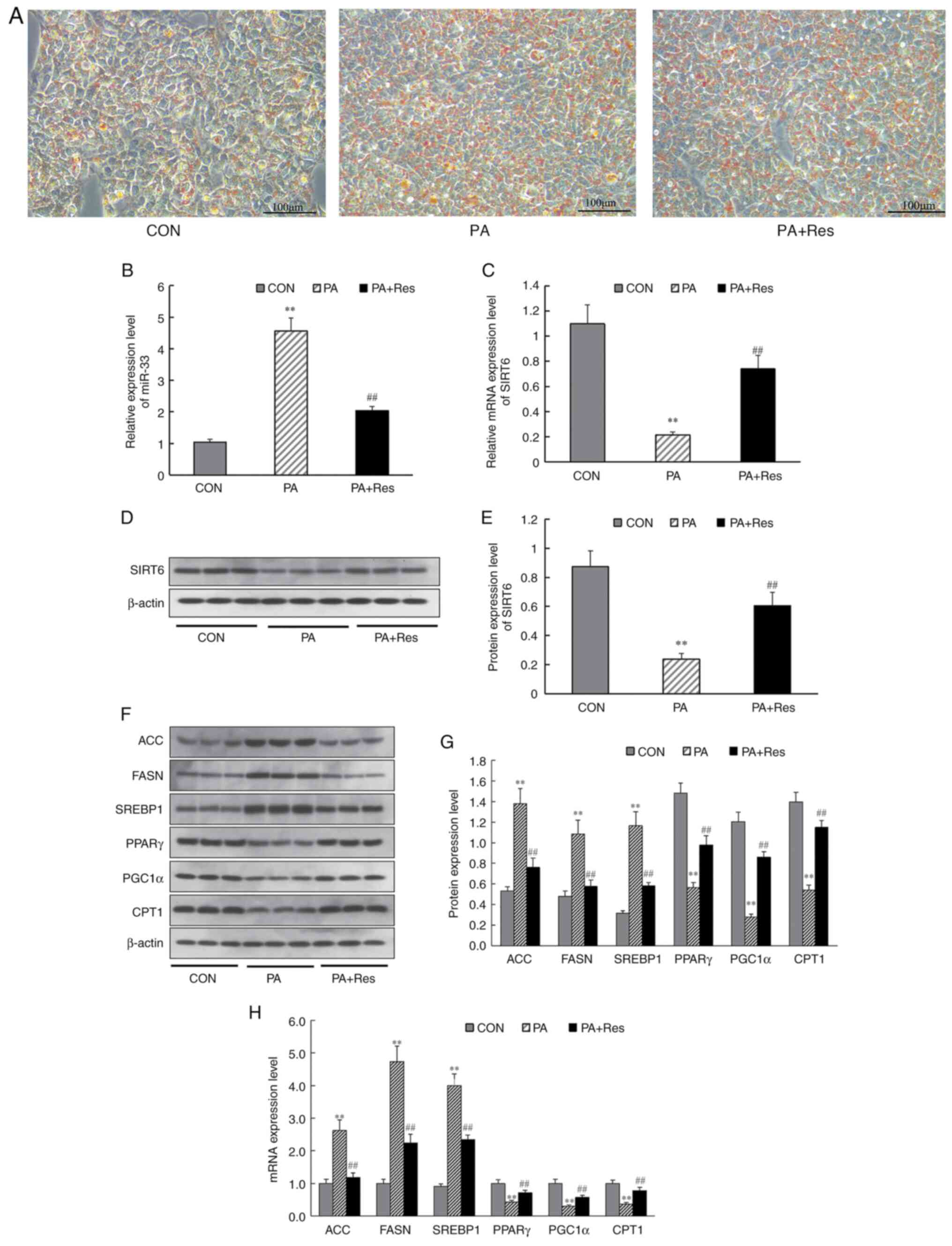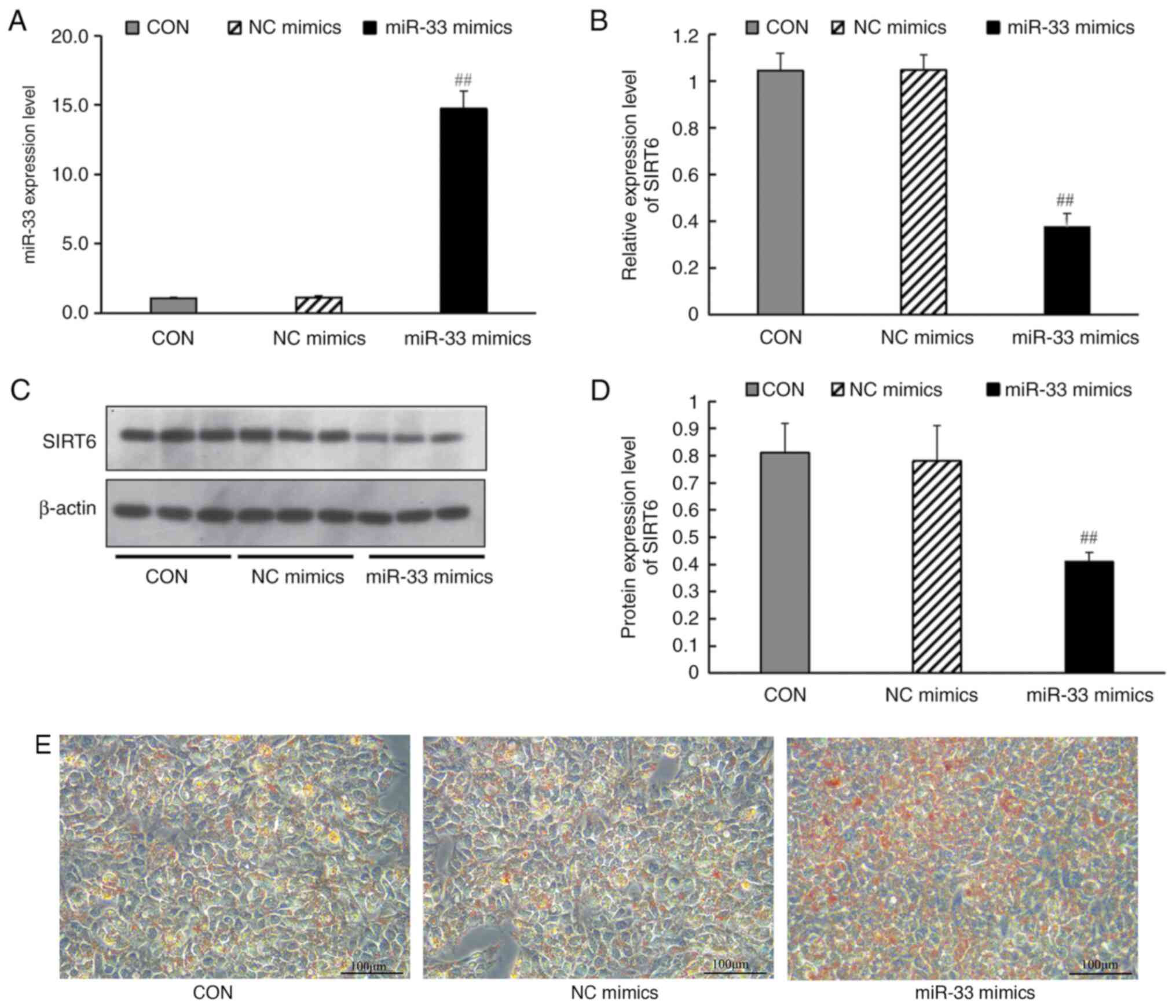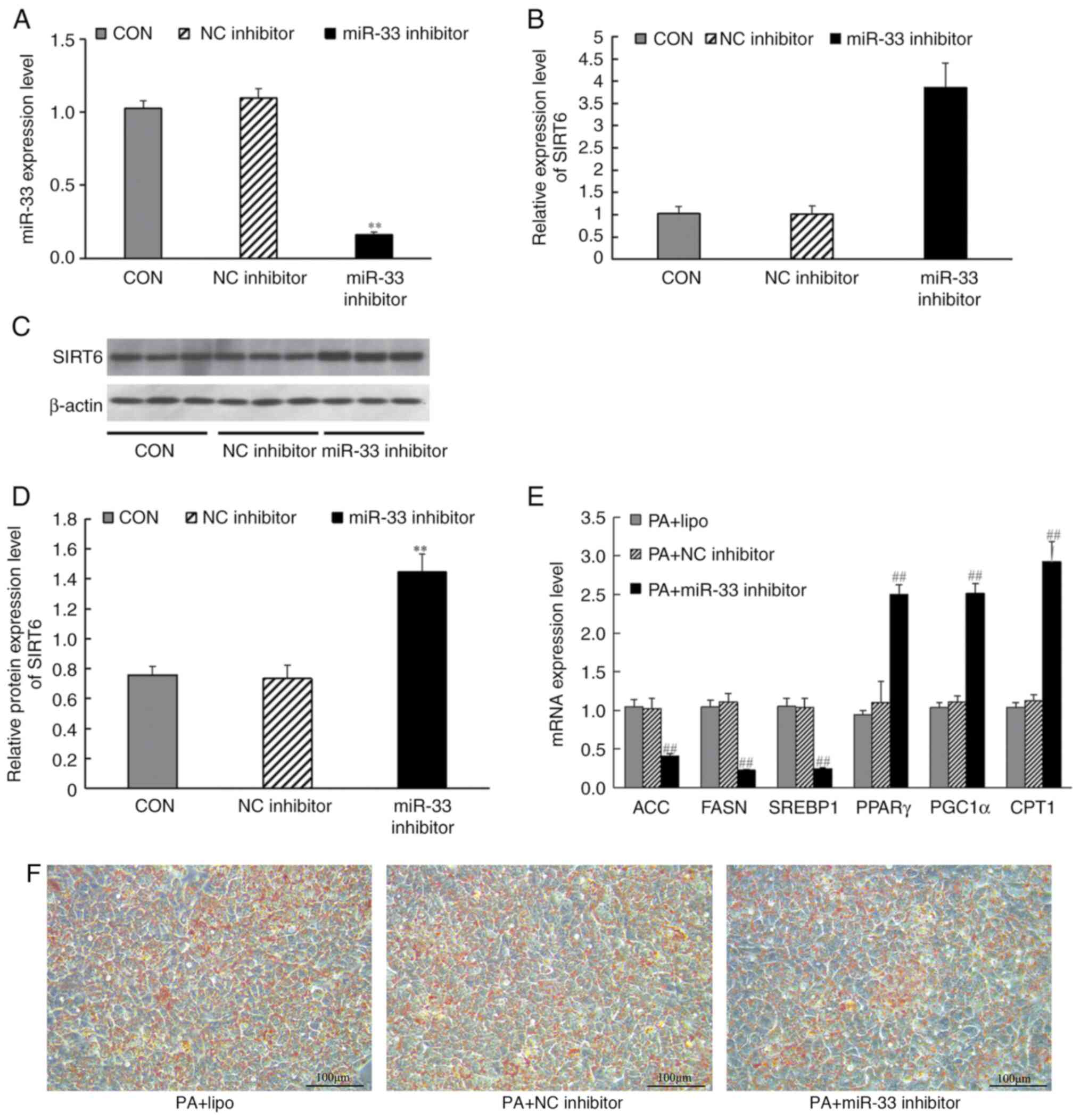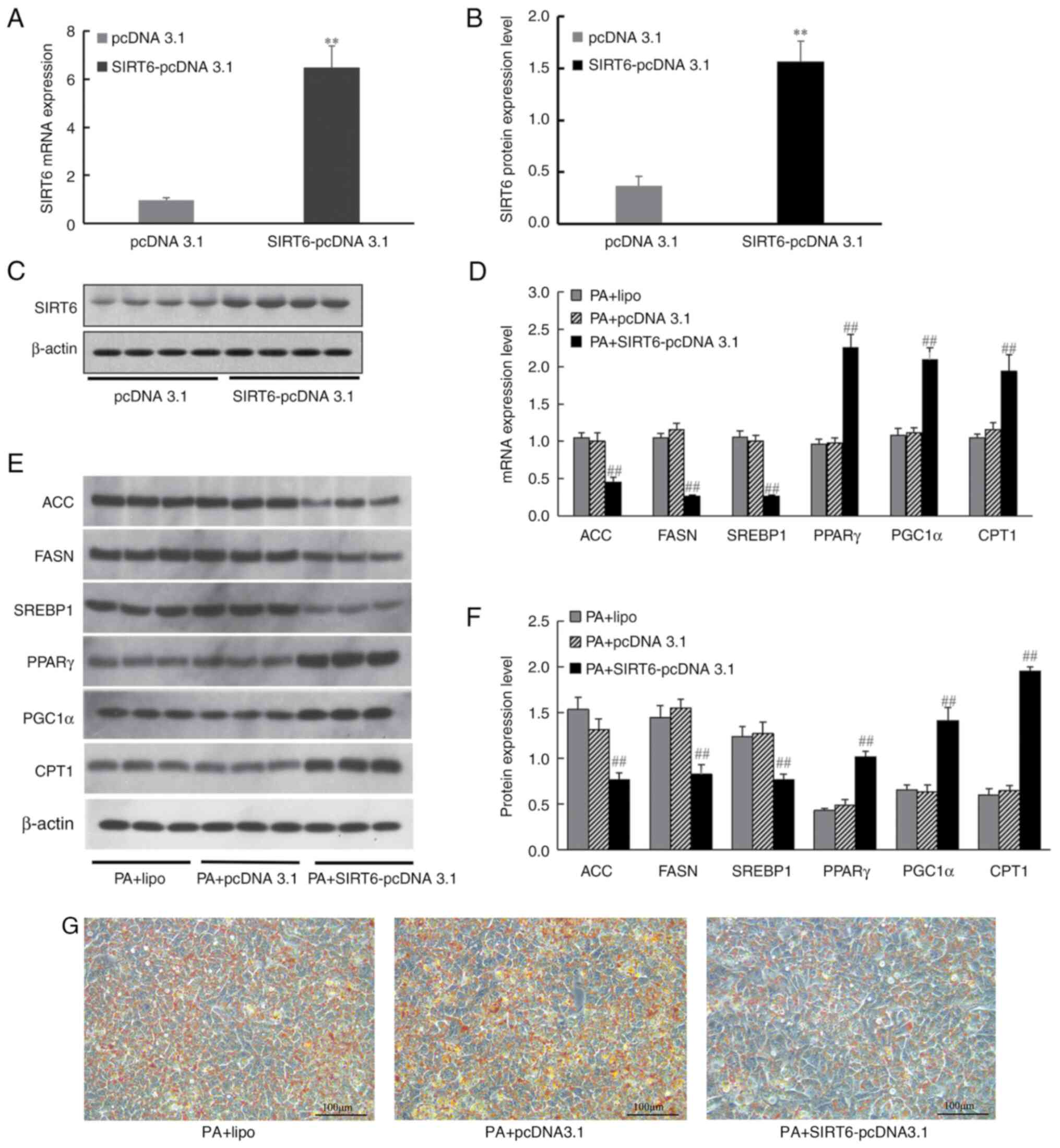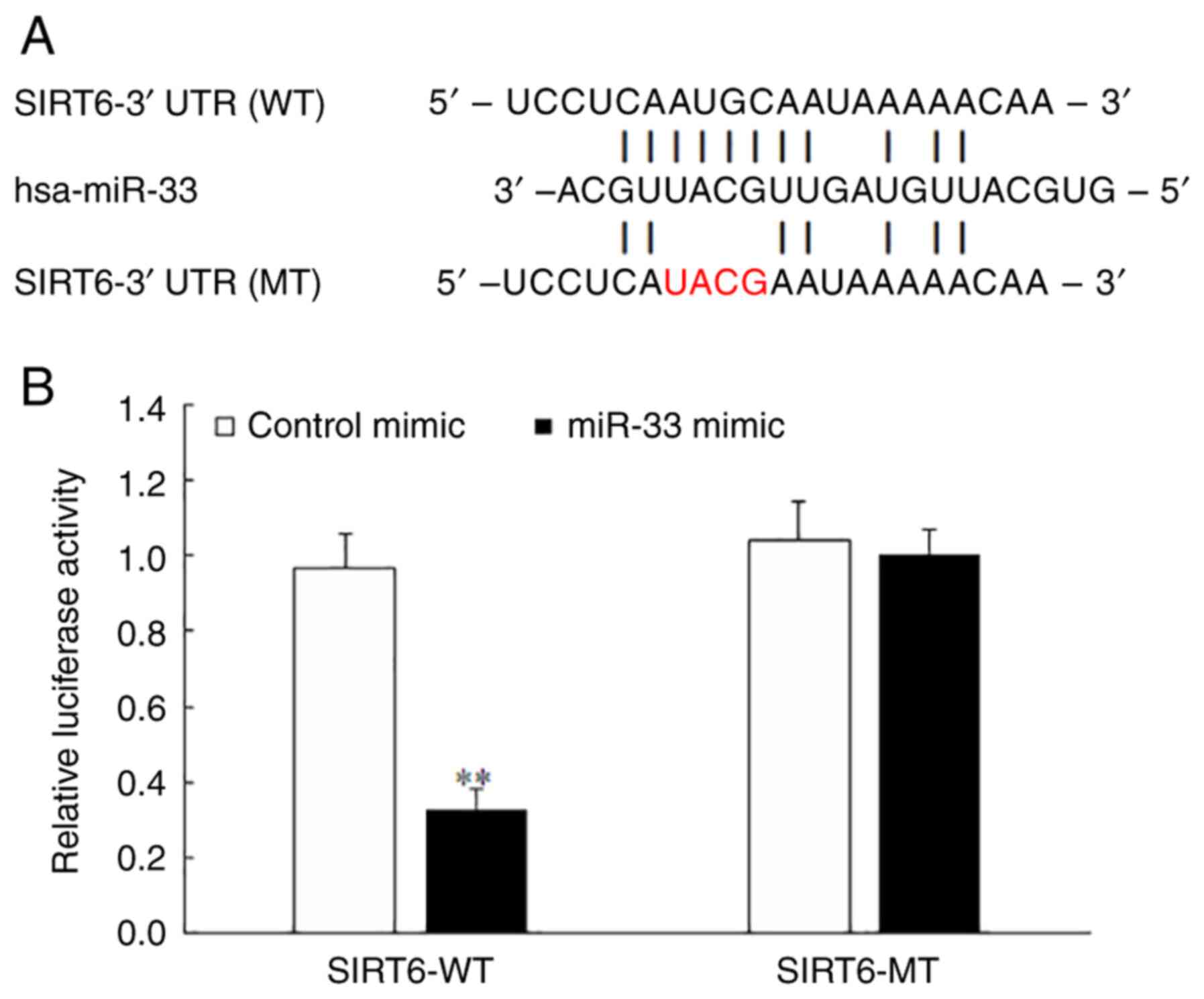|
1
|
Joint Committee on Revision of Guidelines
for the Prevention and Treatment of Dyslipidemia in Adults.
Guidelines for the prevention and treatment of dyslipidemia in
Chinese adults (revised edition 2016). Chin Circul J. 31:937–950.
2016.
|
|
2
|
Mensah GA, Fuster V and Roth GA: A
heart-healthy and stroke-free world: Using data to inform global
action. J Am Coll Cardiol. 82:2343–2349. 2023.PubMed/NCBI View Article : Google Scholar
|
|
3
|
Nelson RH: Hyperlipidemia as a risk factor
for cardiovascular disease. Prim Care. 40:195–211. 2013.PubMed/NCBI View Article : Google Scholar
|
|
4
|
Klop B, Elte JW and Cabezas MC:
Dyslipidemia in obesity: Mechanisms and potential targets.
Nutrients. 5:1218–1240. 2013.PubMed/NCBI View Article : Google Scholar
|
|
5
|
Chen MY, Meng XF, Han YP, Yan JL, Xiao C
and Qian LB: Profile of crosstalk between glucose and lipid
metabolic disturbance and diabetic cardiomyopathy: Inflammation and
oxidative stress. Front Endocrinol (Lausanne).
13(983713)2022.PubMed/NCBI View Article : Google Scholar
|
|
6
|
Song R, Hu M, Qin X, Qiu L, Wang P, Zhang
X, Liu R and Wang X: The roles of lipid metabolism in the
pathogenesis of chronic diseases in the elderly. Nutrients.
15(3433)2023.PubMed/NCBI View Article : Google Scholar
|
|
7
|
Michos ED, McEvoy JW and Blumenthal RS:
Lipid management for the prevention of atherosclerotic
cardiovascular disease. N Engl J Med. 381:1557–1567.
2019.PubMed/NCBI View Article : Google Scholar
|
|
8
|
Agbu P and Carthew RW: MicroRNA-mediated
regulation of glucose and lipid metabolism. Nat Rev Mol Cell Biol.
22:425–438. 2021.PubMed/NCBI View Article : Google Scholar
|
|
9
|
Rayner KJ, Suárez Y, Dávalos A, Parathath
S, Fitzgerald ML, Tamehiro N, Fisher EA, Moore KJ and
Fernández-Hernando C: MiR-33 contributes to the regulation of
cholesterol homeostasis. Science. 328:1570–1573. 2010.PubMed/NCBI View Article : Google Scholar
|
|
10
|
Marquart TJ, Allen RM, Ory DS and Baldán
A: miR-33 links SREBP-2 induction to repression of sterol
transporters. Proc Natl Acad Sci USA. 107:12228–12232.
2010.PubMed/NCBI View Article : Google Scholar
|
|
11
|
Najafi-Shoushtari SH, Kristo F, Li Y,
Shioda T, Cohen DE, Gerszten RE and Näär AM: MicroRNA-33 and the
SREBP host genes cooperate to control cholesterol homeostasis.
Science. 328:1566–1569. 2010.PubMed/NCBI View Article : Google Scholar
|
|
12
|
Price NL, Goedeke L, Suárez Y and
Fernández-Hernando C: miR-33 in cardiometabolic diseases: Lessons
learned from novel animal models and approaches. EMBO Mol Med.
13(e12606)2021.PubMed/NCBI View Article : Google Scholar
|
|
13
|
Deng X, Qin S, Chen Y, Liu H, Yuan E, Deng
H and Liu S: B-RCA revealed circulating miR-33a/b associates with
serum cholesterol in type 2 diabetes patients at high risk of
ASCVD. Diabetes Res Clin Pract. 140:191–199. 2018.PubMed/NCBI View Article : Google Scholar
|
|
14
|
Price NL, Singh AK, Rotllan N, Goedeke L,
Wing A, Canfrán-Duque A, Diaz-Ruiz A, Araldi E, Baldán Á, Camporez
JP, et al: Genetic ablation of miR-33 increases food intake,
enhances adipose tissue expansion, and promotes obesity and insulin
resistance. Cell Rep. 22:2133–2145. 2018.PubMed/NCBI View Article : Google Scholar
|
|
15
|
Price NL, Rotllan N, Canfrán-Duque A,
Zhang X, Pati P, Arias N, Moen J, Mayr M, Ford DA, Baldán Á, et al:
Genetic dissection of the impact of miR-33a and miR-33b during the
progression of atherosclerosis. Cell Rep. 21:1317–1330.
2017.PubMed/NCBI View Article : Google Scholar
|
|
16
|
Näär AM: miR-33: A metabolic conundrum.
Trends Endocrinol Metab. 29:667–668. 2018.PubMed/NCBI View Article : Google Scholar
|
|
17
|
Li T, Francl JM, Boehme S and Chiang JYL:
Regulation of cholesterol and bile acid homeostasis by the
cholesterol 7α-hydroxylase/steroid response element-binding protein
2/microRNA-33a axis in mice. Hepatology. 58:1111–1121.
2013.PubMed/NCBI View Article : Google Scholar
|
|
18
|
Allen RM, Marquart TJ, Albert CJ, Suchy
FJ, Wang DQH, Ananthanarayanan M, Ford DA and Baldán A: miR-33
controls the expression of biliary transporters, and mediates
statin- and diet-induced hepatotoxicity. EMBO Mol Med. 4:882–895.
2012.PubMed/NCBI View Article : Google Scholar
|
|
19
|
Ouimet M, Ediriweera HN, Gundra UM, Sheedy
FJ, Ramkhelawon B, Hutchison SB, Rinehold K, van Solingen C,
Fullerton MD, Cecchini K, et al: MicroRNA-33-dependent regulation
of macrophage metabolism directs immune cell polarization in
atherosclerosis. J Clin Invest. 125:4334–4348. 2015.PubMed/NCBI View Article : Google Scholar
|
|
20
|
Tomita K, Teratani T, Suzuki T, Shimizu M,
Sato H, Narimatsu K, Okada Y, Kurihara C, Irie R, Yokoyama H, et
al: Free cholesterol accumulation in hepatic stellate cells:
Mechanism of liver fibrosis aggravation in nonalcoholic
steatohepatitis in mice. Hepatology. 59:154–169. 2014.PubMed/NCBI View Article : Google Scholar
|
|
21
|
Price NL, Zhang X, Fernández-Tussy P,
Singh AK, Burnap SA, Rotllan N, Goedeke L, Sun J, Canfrán-Duque A,
Aryal B, et al: Loss of hepatic miR-33 improves metabolic
homeostasis and liver function without altering body weight or
atherosclerosis. Proc Natl Acad Sci USA.
118(e2006478118)2021.PubMed/NCBI View Article : Google Scholar
|
|
22
|
Fernández-Tussy P, Sun J, Cardelo MP,
Price NL, Goedeke L, Xirouchaki CE, Yang X, Pastor-Rojo O, Bennett
AM, Tiganis T, et al: Hepatocyte-specific miR-33 deletion
attenuates NAFLD-NASH-HCC progression. bioRxiv [Preprint]:
2023.01.18.523503, 2023.
|
|
23
|
Kang J, Kim H, Mun D, Yun N and Joung B:
Co-delivery of curcumin and miRNA-144-3p using heart-targeted
extracellular vesicles enhances the therapeutic efficacy for
myocardial infarction. J Control Release. 331:62–73.
2021.PubMed/NCBI View Article : Google Scholar
|
|
24
|
Alharris E, Alghetaa H, Seth R, Chatterjee
S, Singh NP, Nagarkatti M and Nagarkatti P: Corrigendum:
Resveratrol attenuates allergic asthma and associated inflammation
in the lungs through regulation of miRNA-34a that targets FoxP3 in
mice. Front Immunol. 14(1130947)2023.PubMed/NCBI View Article : Google Scholar
|
|
25
|
Chen WT, Yang MJ, Tsuei YW, Su TC, Siao
AC, Kuo YC, Huang LR, Chen Y, Chen SJ, Chen PC, et al: Green tea
epigallocatechin gallate inhibits preadipocyte growth via the
microRNA-let-7a/HMGA2 signaling pathway. Mol Nutr Food Res.
67(e2200336)2023.PubMed/NCBI View Article : Google Scholar
|
|
26
|
Pezzuto JM: Resveratrol: Twenty years of
growth, development and controversy. Biomol Ther (Seoul). 27:1–14.
2019.PubMed/NCBI View Article : Google Scholar
|
|
27
|
Huang X and Zhu H: Resveratrol and its
analogues: Promising antitumor agents. Anticancer Agents Med Chem.
11:479–490. 2011.PubMed/NCBI View Article : Google Scholar
|
|
28
|
Rauf A, Imran M, Suleria HAR, Ahmad B,
Peters DG and Mubarak MS: A comprehensive review of the health
perspectives of resveratrol. Food Funct. 8:4284–4305.
2017.PubMed/NCBI View Article : Google Scholar
|
|
29
|
Zhang W, Yu H, Lin Q, Liu X, Cheng Y and
Deng B: Anti-inflammatory effect of resveratrol attenuates the
severity of diabetic neuropathy by activating the Nrf2 pathway.
Aging (Albany NY). 13:10659–10671. 2021.PubMed/NCBI View Article : Google Scholar
|
|
30
|
Bagul PK, Middela H, Matapally S, Padiya
R, Bastia T, Madhusudana K, Reddy BR, Chakravarty S and Banerjee
SK: Attenuation of insulin resistance, metabolic syndrome and
hepatic oxidative stress by resveratrol in fructose-fed rats.
Pharmacol Res. 66:260–268. 2012.PubMed/NCBI View Article : Google Scholar
|
|
31
|
Most J, Timmers S, Warnke I, Jocken JW,
van Boekschoten M, de Groot P, Bendik I, Schrauwen P, Goossens GH
and Blaak EE: Combined epigallocatechin-3-gallate and resveratrol
supplementation for 12 wk increases mitochondrial capacity and fat
oxidation, but not insulin sensitivity, in obese humans: A
randomized controlled trial. Am J Clin Nutr. 104:215–227.
2016.PubMed/NCBI View Article : Google Scholar
|
|
32
|
Auger C, Teissedre PL, Gérain P, Lequeux
N, Bornet A, Serisier S, Besançon P, Caporiccio B, Cristol JP and
Rouanet JM: Dietary wine phenolics catechin, quercetin, and
resveratrol efficiently protect hypercholesterolemic hamsters
against aortic fatty streak accumulation. J Agric Food Chem.
53:2015–2021. 2005.PubMed/NCBI View Article : Google Scholar
|
|
33
|
Fogacci F, Tocci G, Presta V, Fratter A,
Borghi C and Cicero AFG: Effect of resveratrol on blood pressure: A
systematic review and meta-analysis of randomized, controlled,
clinical trials. Crit Rev Food Sci Nutr. 59:1605–1618.
2019.PubMed/NCBI View Article : Google Scholar
|
|
34
|
Singh AP, Singh R, Verma SS, Rai V,
Kaschula CH, Maiti P and Gupta SC: Health benefits of resveratrol:
Evidence from clinical studies. Med Res Rev. 39:1851–1891.
2019.PubMed/NCBI View Article : Google Scholar
|
|
35
|
Onuki J, Almeida EA, Medeiros MHG and Di
Mascio P: Inhibition of 5-aminolevulinic acid-induced DNA damage by
melatonin, N1-acetyl-N2-formyl-5-methoxykynuramine, quercetin or
resveratrol. J Pineal Res. 38:107–115. 2005.PubMed/NCBI View Article : Google Scholar
|
|
36
|
Fujimoto M, Shimizu N, Kunii K, Martyn
JAJ, Ueki K and Kaneki M: A role for iNOS in fasting hyperglycemia
and impaired insulin signaling in the liver of obese diabetic mice.
Diabetes. 54:1340–1348. 2005.PubMed/NCBI View Article : Google Scholar
|
|
37
|
Yarahmadi S, Farahmandian N, Fadaei R,
Koushki M, Bahreini E, Karima S, Barzin Tond S, Rezaei A,
Nourbakhsh M and Fallah S: Therapeutic potential of resveratrol and
atorvastatin following high-fat diet uptake-induced nonalcoholic
fatty liver disease by targeting genes involved in cholesterol
metabolism and miR33. DNA Cell Biol. 42:82–90. 2023.PubMed/NCBI View Article : Google Scholar
|
|
38
|
Baselga-Escudero L, Blade C, Ribas-Latre
A, Casanova E, Suárez M, Torres JL, Salvado MJ, Arola L and
Arola-Arnal A: Resveratrol and EGCG bind directly and distinctively
to miR-33a and miR-122 and modulate divergently their levels in
hepatic cells. Nucleic Acids Res. 42:882–892. 2014.PubMed/NCBI View Article : Google Scholar
|
|
39
|
Ferdowsian H: Human and animal research
guidelines: Aligning ethical constructs with new scientific
developments. Bioethics. 25:472–478. 2011.PubMed/NCBI View Article : Google Scholar
|
|
40
|
Hickman DL: Minimal exposure times for
irreversible euthanasia with carbon dioxide in mice and rats. J Am
Assoc Lab Anim Sci. 61:283–286. 2022.PubMed/NCBI View Article : Google Scholar
|
|
41
|
American Veterinary Medical Association.
[Internet]. 2020. AVMA guidelines for the euthanasia of animals.
[Cited 12 January 2022.] Available at: https://www.avma.org/sites/default/files/2020-01/2020-Euthanasia-Final-1-17-20.pdf.
|
|
42
|
Livak KJ and Schmittgen TD: Analysis of
relative gene expression data using real-time quantitative PCR and
the 2(-Delta Delta C(T)) method. Methods. 25:402–408.
2001.PubMed/NCBI View Article : Google Scholar
|
|
43
|
Horie T, Nishino T, Baba O, Kuwabara Y,
Nakao T, Nishiga M, Usami S, Izuhara M, Sowa N, Yahagi N, et al:
MicroRNA-33 regulates sterol regulatory element-binding protein 1
expression in mice. Nat Commun. 4(2883)2013.PubMed/NCBI View Article : Google Scholar
|
|
44
|
Barwari T, Joshi A and Mayr M: MicroRNAs
in cardiovascular disease. J Am Coll Cardiol. 68:2577–2584.
2016.PubMed/NCBI View Article : Google Scholar
|
|
45
|
Olson EN: MicroRNAs as therapeutic targets
and biomarkers of cardiovascular disease. Sci Transl Med.
6(239ps3)2014.PubMed/NCBI View Article : Google Scholar
|
|
46
|
Mahtal N, Lenoir O, Tinel C, Anglicheau D
and Tharaux PL: MicroRNAs in kidney injury and disease. Nat Rev
Nephrol. 18:643–662. 2022.PubMed/NCBI View Article : Google Scholar
|
|
47
|
Wonnacott A, Denby L, Coward RJM, Fraser
DJ and Bowen T: MicroRNAs and their delivery in diabetic fibrosis.
Adv Drug Deliv Rev. 182(114045)2022.PubMed/NCBI View Article : Google Scholar
|
|
48
|
Ji C and Guo X: The clinical potential of
circulating microRNAs in obesity. Nat Rev Endocrinol. 15:731–743.
2019.PubMed/NCBI View Article : Google Scholar
|
|
49
|
Gerlach CV and Vaidya VS: MicroRNAs in
injury and repair. Arch Toxicol. 91:2781–2797. 2017.PubMed/NCBI View Article : Google Scholar
|
|
50
|
Alrob OA, Khatib S and Naser SA: MicroRNAs
33, 122, and 208: A potential novel targets in the treatment of
obesity, diabetes, and heart-related diseases. J Physiol Biochem.
73:307–314. 2017.PubMed/NCBI View Article : Google Scholar
|
|
51
|
Baselga-Escudero L, Bladé C, Ribas-Latre
A, Casanova E, Salvadó MJ, Arola L and Arola-Arnal A: Grape seed
proanthocyanidins repress the hepatic lipid regulators miR-33 and
miR-122 in rats. Mol Nutr Food Res. 56:1636–1646. 2012.PubMed/NCBI View Article : Google Scholar
|
|
52
|
Rayner KJ, Esau CC, Hussain FN, McDaniel
AL, Marshall SM, van Gils JM, Ray TD, Sheedy FJ, Goedeke L, Liu X,
et al: Inhibition of miR-33a/b in non-human primates raises plasma
HDL and lowers VLDL triglycerides. Nature. 478:404–407.
2011.PubMed/NCBI View Article : Google Scholar
|
|
53
|
Dong Y, Chen H, Gao J, Liu Y, Li J and
Wang J: Bioactive ingredients in Chinese Herbal medicines that
target non-coding RNAs: Promising new choices for disease
treatment. Front Pharmacol. 10(515)2019.PubMed/NCBI View Article : Google Scholar
|
|
54
|
Guo G, Zhou J, Yang X, Feng J, Shao Y, Jia
T, Huang Q, Li Y, Zhong Y, Nagarkatti PS and Nagarkatti M: Role of
MicroRNAs induced by Chinese Herbal medicines against
hepatocellular carcinoma: A brief review. Integr Cancer Ther.
17:1059–1067. 2018.PubMed/NCBI View Article : Google Scholar
|
|
55
|
Huang Z, Huang Q, Ji L, Wang Y, Qi X, Liu
L, Liu Z and Lu L: Epigenetic regulation of active Chinese herbal
components for cancer prevention and treatment: A follow-up review.
Pharmacol Res. 114:1–12. 2016.PubMed/NCBI View Article : Google Scholar
|
|
56
|
Xin H, Kong Y, Wang Y, Zhou Y, Zhu Y, Li D
and Tan W: Lignans extracted from Vitex negundo possess cytotoxic
activity by G2/M phase cell cycle arrest and apoptosis induction.
Phytomedicine. 20:640–647. 2023.PubMed/NCBI View Article : Google Scholar
|
|
57
|
Wu Z, Zhu Q, Yin Y, Kang D, Cao R, Tian Q,
Zhang Y, Lu S and Liu P: Traditional Chinese medicine CFF-1 induced
cell growth inhibition, autophagy, and apoptosis via inhibiting
EGFR-related pathways in prostate cancer. Cancer Med. 7:1546–1559.
2018.PubMed/NCBI View Article : Google Scholar
|
|
58
|
Cao R, Bai Y, Sun L, Zheng J, Zu M, Du G
and Ye P: Xuezhikang therapy increases miR-33 expression in
patients with low HDL-C levels. Dis Markers.
2014(781780)2014.PubMed/NCBI View Article : Google Scholar
|
|
59
|
Su D, Liu H, Qi X, Dong L, Zhang R and
Zhang J: Citrus peel flavonoids improve lipid metabolism by
inhibiting miR-33 and miR-122 expression in HepG2 cells. Biosci
Biotechnol Biochem. 83:1747–1755. 2019.PubMed/NCBI View Article : Google Scholar
|
|
60
|
Yang X, Wang L, Zhang Z, Hu J, Liu X, Wen
H, Liu M, Zhang X, Dai H, Ni M, et al: Ginsenoside Rb1
enhances plaque stability and inhibits adventitial vasa vasorum via
the modulation of miR-33 and PEDF. Front Cardiovasc Med.
8(654670)2021.PubMed/NCBI View Article : Google Scholar
|
|
61
|
Kim HS, Xiao C, Wang RH, Lahusen T, Xu X,
Vassilopoulos A, Vazquez-Ortiz G, Jeong WI, Park O, Ki SH, et al:
Hepatic-specific disruption of SIRT6 in mice results in fatty liver
formation due to enhanced glycolysis and triglyceride synthesis.
Cell Metab. 12:224–236. 2010.PubMed/NCBI View Article : Google Scholar
|
|
62
|
He J, Zhang G, Pang Q, Yu C, Xiong J, Zhu
J and Chen F: SIRT6 reduces macrophage foam cell formation by
inducing autophagy and cholesterol efflux under ox-LDL condition.
FEBS J. 284:1324–1337. 2017.PubMed/NCBI View Article : Google Scholar
|
|
63
|
Rayner KJ, Sheedy FJ, Esau CC, Hussain FN,
Temel RE, Parathath S, van Gils JM, Rayner AJ, Chang AN, Suarez Y,
et al: Antagonism of miR-33 in mice promotes reverse cholesterol
transport and regression of atherosclerosis. J Clin Invest.
121:2921–2931. 2011.PubMed/NCBI View Article : Google Scholar
|
|
64
|
Shao F, Wang X, Yu J, Jiang H, Zhu B and
Gu Z: Expression of miR-33 from an SREBF2 intron targets the FTO
gene in the chicken. PLoS One. 9(e91236)2014.PubMed/NCBI View Article : Google Scholar
|
|
65
|
Zheng Y, Jiang S, Zhang Y, Zhang R and
Gong D: Detection of miR-33 expression and the verification of its
target genes in the fatty liver of geese. Int J Mol Sci.
16:12737–12752. 2015.PubMed/NCBI View Article : Google Scholar
|
|
66
|
D'Onofrio N, Sardu C, Paolisso P,
Minicucci F, Gragnano F, Ferraraccio F, Panarese I, Scisciola L,
Mauro C, Rizzo MR, et al: MicroRNA-33 and SIRT1 influence the
coronary thrombus burden in hyperglycemic STEMI patients. J Cell
Physiol. 235:1438–1452. 2020.PubMed/NCBI View Article : Google Scholar
|
|
67
|
Gnanaguru G, Wagschal A, Oh J, Saez-Torres
KL, Li T, Temel RE, Kleinman ME, Näär AM and D'Amore PA: Targeting
of miR-33 ameliorates phenotypes linked to age-related macular
degeneration. Mol Ther. 29:2281–2293. 2021.PubMed/NCBI View Article : Google Scholar
|
|
68
|
Yerlikaya FH, Can U, Alpaydin MS and
Aribas A: The relationship between plasma microRNAs and serum trace
elements levels in primary hyperlipidemia. Bratisl Lek Listy.
120:344–348. 2019.PubMed/NCBI View Article : Google Scholar
|
|
69
|
Simionescu N, Niculescu LS, Sanda GM,
Margina D and Sima AV: Analysis of circulating microRNAs that are
specifically increased in hyperlipidemic and/or hyperglycemic sera.
Mol Biol Rep. 41:5765–5773. 2014.PubMed/NCBI View Article : Google Scholar
|
|
70
|
Marmorstein R: Structure and chemistry of
the Sir2 family of NAD+-dependent histone/protein deactylases.
Biochem Soc Trans. 32:904–909. 2004.PubMed/NCBI View Article : Google Scholar
|
|
71
|
Kanfi Y, Peshti V, Gil R, Naiman S, Nahum
L, Levin E, Kronfeld-Schor N and Cohen HY: SIRT6 protects against
pathological damage caused by diet-induced obesity. Aging Cell.
9:162–173. 2010.PubMed/NCBI View Article : Google Scholar
|
|
72
|
Hong J, Mei C, Abbas Raza SH, Khan R,
Cheng G and Zan L: SIRT6 cooperates with SIRT5 to regulate bovine
preadipocyte differentiation and lipid metabolism via the AMPKα
signaling pathway. Arch Biochem Biophys. 681(108260)2020.PubMed/NCBI View Article : Google Scholar
|
|
73
|
Yang Q, Hu J, Yang Y, Chen Z, Feng J, Zhu
Z, Wang H, Yang D, Liang W and Ding G: Sirt6 deficiency aggravates
angiotensin II-induced cholesterol accumulation and injury in
podocytes. Theranostics. 10:7465–7479. 2020.PubMed/NCBI View Article : Google Scholar
|
|
74
|
Tao R, Xiong X, DePinho RA, Deng CX and
Dong XC: Hepatic SREBP-2 and cholesterol biosynthesis are regulated
by FoxO3 and Sirt6. J Lipid Res. 54:2745–2753. 2013.PubMed/NCBI View Article : Google Scholar
|
|
75
|
Elhanati S, Kanfi Y, Varvak A, Roichman A,
Carmel-Gross I, Barth S, Gibor G and Cohen HY: Multiple regulatory
layers of SREBP1/2 by SIRT6. Cell Rep. 4:905–912. 2013.PubMed/NCBI View Article : Google Scholar
|
|
76
|
Guo Z, Li P, Ge J and Li H: SIRT6 in
aging, metabolism, inflammation and cardiovascular diseases. Aging
Dis. 13:1787–1822. 2022.PubMed/NCBI View Article : Google Scholar
|
|
77
|
Naiman S, Huynh FK, Gil R, Glick Y, Shahar
Y, Touitou N, Nahum L, Avivi MY, Roichman A, Kanfi Y, et al: SIRT6
promotes hepatic beta-oxidation via activation of PPARα. Cell Rep.
29:4127–4143.e8. 2019.PubMed/NCBI View Article : Google Scholar
|
|
78
|
Ambele MA, Dhanraj P, Giles R and Pepper
MS: Adipogenesis: A complex interplay of multiple molecular
determinants and pathways. Int J Mol Sci. 21(4283)2020.PubMed/NCBI View Article : Google Scholar
|
|
79
|
Brewer M, Lange D, Baler R and Anzulovich
A: SREBP-1 as a transcriptional integrator of circadian and
nutritional cues in the liver. J Biol Rhythms. 20:195–205.
2005.PubMed/NCBI View Article : Google Scholar
|
|
80
|
Prodanović R, Korićanac G, Vujanac I,
Djordjević A, Pantelić M, Romić S, Stanimirović Z and Kirovski D:
Obesity-driven prepartal hepatic lipid accumulation in dairy cows
is associated with increased CD36 and SREBP-1 expression. Res Vet
Sci. 107:16–19. 2016.PubMed/NCBI View Article : Google Scholar
|
|
81
|
Feng T, Li S, Zhao G, Li Q, Yuan H, Zhang
J, Gu R, Ou D, Guo Y, Kou Q, et al: DDX39B facilitates the
malignant progression of hepatocellular carcinoma via activation of
SREBP1-mediated de novo lipid synthesis. Cell Oncol (Dordr).
46:1235–1252. 2023.PubMed/NCBI View Article : Google Scholar
|
|
82
|
Abukhalil MH, Hussein OE, Bin-Jumah M,
Saghir SAM, Germoush MO, Elgebaly HA, Mosa NM, Hamad I, Qarmush MM,
Hassanein EM, et al: Farnesol attenuates oxidative stress and liver
injury and modulates fatty acid synthase and acetyl-CoA carboxylase
in high cholesterol-fed rats. Environ Sci Pollut Res Int.
27:30118–30132. 2020.PubMed/NCBI View Article : Google Scholar
|
|
83
|
Kastaniotis AJ, Autio KJ, Kerätär JM,
Monteuuis G, Mäkelä AM, Nair RR, Pietikäinen LP, Shvetsova A, Chen
Z and Hiltunen JK: Mitochondrial fatty acid synthesis, fatty acids
and mitochondrial physiology. Biochim Biophys Acta Mol Cell Biol
Lipids. 1862:39–48. 2017.PubMed/NCBI View Article : Google Scholar
|
|
84
|
Peng X, Li J, Wang M, Qu K and Zhu H: A
novel AMPK activator improves hepatic lipid metabolism and
leukocyte trafficking in experimental hepatic steatosis. J
Pharmacol Sci. 140:153–161. 2019.PubMed/NCBI View Article : Google Scholar
|
|
85
|
Mørkholt AS, Oklinski MK, Larsen A,
Bockermann R, Issazadeh-Navikas S, Nieland JGK, Kwon TH, Corthals
A, Nielsen S and Nieland JDV: Pharmacological inhibition of
carnitine palmitoyl transferase 1 inhibits and reverses
experimental autoimmune encephalitis in rodents. PLoS One.
15(e0234493)2020.PubMed/NCBI View Article : Google Scholar
|
|
86
|
Song S, Attia RR, Connaughton S, Niesen
MI, Ness GC, Elam MB, Hori RT, Cook GA and Park EA: Peroxisome
proliferator activated receptor alpha (PPARalpha) and PPAR gamma
coactivator (PGC-1alpha) induce carnitine palmitoyltransferase IA
(CPT-1A) via independent gene elements. Mol Cell Endocrinol.
325:54–63. 2010.PubMed/NCBI View Article : Google Scholar
|
|
87
|
Schlaepfer IR and Joshi M: CPT1A-mediated
fat oxidation, mechanisms, and therapeutic potential.
Endocrinology. 161(bqz046)2020.PubMed/NCBI View Article : Google Scholar
|
|
88
|
Sabry MM, Dawood AF, Rashed LA, Sayed SM,
Hassan S and Younes SF: Relation between resistin, PPAR-γ, obesity
and atherosclerosis in male albino rats. Arch Physiol Biochem.
126:389–398. 2020.PubMed/NCBI View Article : Google Scholar
|
|
89
|
Zhang Y, Ma K, Song S, Elam MB, Cook GA
and Park EA: Peroxisomal proliferator-activated receptor-gamma
coactivator-1 alpha (PGC-1 alpha) enhances the thyroid hormone
induction of carnitine palmitoyltransferase I (CPT-I alpha). J Biol
Chem. 279:53963–53971. 2004.PubMed/NCBI View Article : Google Scholar
|
















